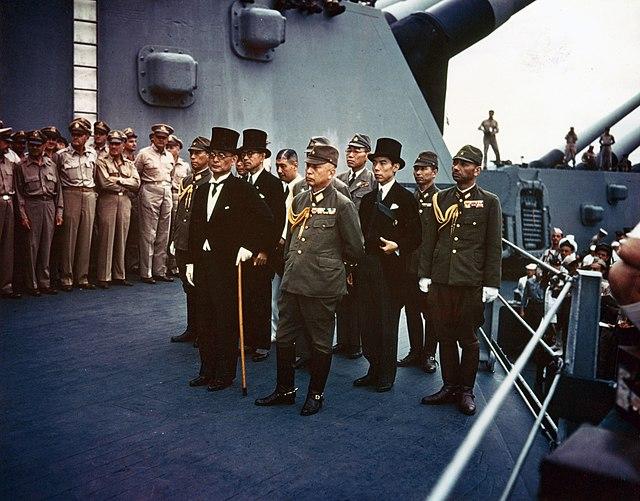Nuking Japan: nobody asked the enslaved
The discussion about the acceptability of using nuclear weapons usually occurs around August 6 of every year, the date that Little Boy was dropped on Hiroshima; world events have rekindled this discussion outside of its usual season.
Absent from the discussion is how the Koreans, Chinese, Filipinos, Vietnamese, and other Asian peoples felt about being colonially occupied by Japan. Often, Japanese “revisionist” historians will try to whitewash Japanese history, in alliance with U.S. far leftists, to portray the U.S. involvement in WWII as “imperialistic against a non-white people.”
First, let us address what Japan was doing in Asia in the early 20th century. Quite literally, Japan wanted to build a European-style empire and become equal partners in colonialism with Europe. In a span of less than 40 years, from 1868 to 1905, Emperor Meiji radically transformed his nation. He turned Japan from a people of medieval rice farmers in 1868 to a “Great Power”, the equal of any European power, by defeating Imperial Russia in the Russo-Japanese War in 1905.
The significance of Admiral Togo’s victory over what effectively amounted to the entire Russian navy is hard to overstate and is not well-known today. In 1905, the idea that a non-white power could win a naval victory over a European power was practically unheard of. A European army might lose to a “primitive” army at Isandlwana where the British were outnumbered ten-to-one. But the idea that a nation who, 40 years prior, did not even possess the technical knowledge of how to operate a steam warship could defeat a mighty empire like Imperial Russia shook Asia and the world.
This victory in 1905 set Japan on a political course that would eventually lead to August 6, 1945. An ideology developed where Japan saw itself as the “Father of Asia” who was to protect the other “child races” from European exploitation. Sadly, it did not take long for Japanese Colonialism to far exceed the excesses of British, French, or Dutch colonialism (the major European powers in the region) and kill more people than the Belgians in the Congo.
These excesses culminated in events like the Rape of Nanking. Over the course of six weeks in 1938, the Imperial Japanese Army conducted a series of war crimes that ranged from mass rape to literal “execution games” where Japanese officers tried to behead as many Chinese civilians as possible. These “execution games” were advertised as sporting events by the Japanese press. As many as 300,000 people were murdered during the massacre. (In comparison, the Union Army lost about that many soldiers in the American Civil War… over four years.)
Things were so bad, that staunch Nazi John Rabe, a German businessman living in Nanking, used his consular papers to help Chinese civilians escape the massacre. The Japanese were so evil that the leader of the Nazi Party’s local branch in Nanking risked his life to save 250,000 non-white lives from the Japanese. Oskar Schindler saved 1,200 Jews in WWII from people like John Rabe.
The Rape of Nanking was merely the tip of the iceberg of what Japan was doing in their “Greater East Asia Co-Prosperity Sphere.” In Korea, many women were sexually enslaved and the local population impoverished so badly by Japanese Colonialism that many other women voluntarily sold themselves to brothels. In Burma, the Nationalist and Founding Father Aung San started World War II believing that Japan could liberate his country from “evil European Colonialism.” By 1944, Aung San had completely switched sides, supported the British, and wanted the British back in Burma due to the sheer amount of war crimes committed by the Japanese.
In India, Japanese soldiers literally committed cannibalism on captured Indian soldiers.
Whatever a betrayal Pearl Harbor was to the United States, Japan had been acting worse than Nazis (literally) in Asia long before the USS Arizona went to the bottom. The people of Asia had been suffering under Japanese imperialism for half a century before Yamamoto attacked Pearl Harbor.
I was surprised to find, after much internet research, that nobody seems to have polled the Koreans, Chinese, Burmese, or Filipinos about whether they felt the use of nuclear weapons on Hiroshima and Nagasaki was justified. (Note: If any reader can identify such polling that took place after the war of people who lived through those occupations, please contact me via Twitter/X.)
The biggest victims of Japanese imperial aggression are totally left out of the conversation on the morality of the use of nuclear weapons against Japan. This is a historical travesty and is difficult to address since virtually anyone still alive who lived through those times is very elderly now, and was very young at the time of the events in question.
I was born in Korea and am a mix of Korean and Japanese. I would implore anyone considering the morality of using nuclear weapons against Japan to consider the feelings of those who were living under the slavery of Japanese occupation. It was an occupation so bad, that even Nazis in the area felt compelled to help the oppressed. Even if events like the Rape of Nanking do not justify the use of nuclear weapons, I am very certain that if I were living under Japanese slavery at the time, I would have said “please nuke Japan sooner rather than later, my daughter would like to stop being a sex slave for Japanese soldiers.”

Twitter/X: @sinclairjulianr
Image: Public domain.





